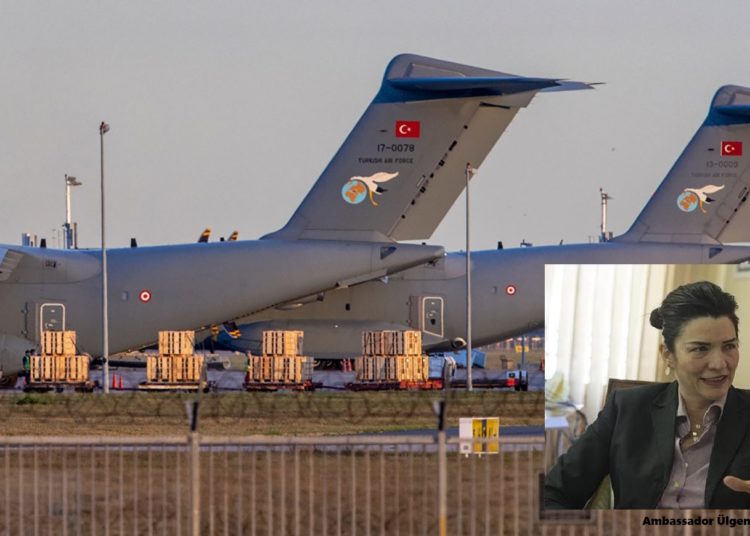Nordic Monitor
The Joint Standing Committee on Defence of the South African parliament has questioned the National Conventional Arms Control Committee (NCACC) about reports that military hardware had been exported to Turkey in May 2020 and the possibility that it might end up in Libya.
The joint standing committee meeting was held on Thursday and headed by MPs Cyril Xaba and Elleck Nchabeleng.
According to a press release from the parliament, the chairperson of the NCACC, Minister in the Presidency Jackson Mthembu, said the NCACC has requested a report on the issue from the ministers responsible for the Department of International Relations and Cooperation (Dirco), the National Intelligence Coordinating Committee and the Department of Defence (DOD).
Minister Mthembu called on Turkey to use military equipment in accordance with the accord reached by the two parties. “Countries that we interact with in good faith should not do anything that has not been agreed on” he told the committee.
In May six Turkish military cargo aircraft traveled from Turkey to South Africa with a small amount of medical supplies on board one plane to pick up military equipment purchased from defense industry provider Rheinmetall Denel Munition (RDM) amid the coronavirus pandemic.
Despite local lockdown regulations that only allow for the transport of essentials such as food and medicine, six Turkish A400M military cargo aircraft, each of which can carry up to 37 tons, left South Africa loaded with military equipment, the Daily Maverick (DM) reported.

The export of military equipment to Turkey has sparked criticism in South Africa due to Turkey’s involvement in Libya and Syria. On May 8 Shannon Ebrahim, the Independent Media group foreign editor, stated that it is far more likely the military hardware will be used in its war efforts in Libya or Syria, or both, instead of military exercises as Turkey claimed.
According to Ebrahim, the sale of any type of military hardware to Turkey would go against the provisions of the NCACC Act and underlined the fact that the RDM is jointly owned by a German company that has banned the export of weapons to Turkey which could be used in the conflict in Syria. According to its web page, RDM “specializes in the development, design and manufacture of large- and medium-calibre ammunition families and is a world leader in the field of artillery, mortar and infantry systems as well as plant engineering.”
“The sale and use of military weapons are guided by international protocol, and also by South African regulations that military hardware is not to be sold to countries involved in conflicts” stressed Minister Mthembu in the joint standing committee meeting.

Turkish Ambassador to South Africa Elif Çomoğlu Ülgen claimed that the cargo was military ammunition bought from RDM and stated that “the outbound cargo was destined for practice and exercises by the Turkish military.”
In her op-ed published by IOL, Ülgen underlined “such military transactions are subject to strict legal scrutiny in both countries and naturally they were cleared from relevant authorities with all necessary permits granted,” and accused media of “[taking] the issue out of context and abus[ing it] so as to serve the ill-intended underlying agendas of Turkey’s enemies.”

Nordic Monitor previously reported how the Turkish Embassy in Pretoria, currently run by Ambassador Ülgen, was transformed into a spying center for President Recep Tayyip Erdoğan’s Islamist government. The embassy spied on the activities of critics of President Erdoğan in South Africa, profiled their organizations and listed their names as if they were part of a terrorist organization.
Ambassador Ülgen has also been facilitating the establishment of Turkish Islamist entities, mainly the Maarif Foundation, a Turkish-government-funded organization that intends to expand its education network in South Africa and its neighborhood.












